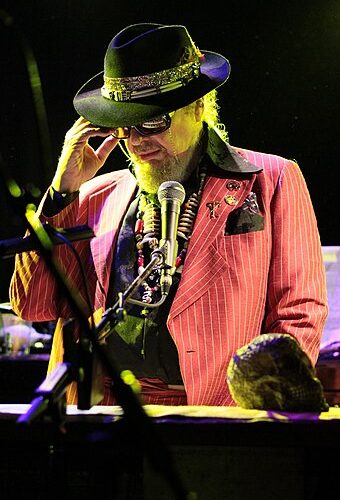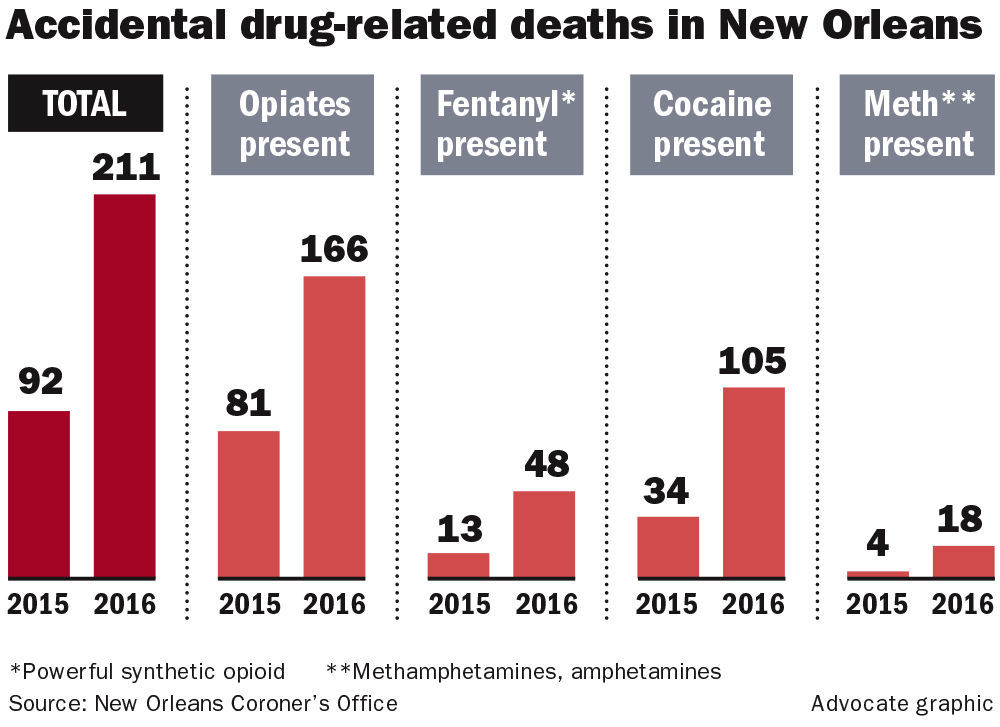Malcolm John Rebennack Jr, better known by his stage name Dr. John was a blues, pop, jazz, rock and roll, and funk singer and songwriter. After the release of his album Gris-Gris in 1968, Dr. John gained widespread popularity, eventually recording thirty studio albums, nine live albums, and various contributions to other musicians’ music. Dr. John is not only the holder of six Grammy Awards, but he was inducted into the Rock and Roll Hall of Fame, and received an honorary doctorate of fine arts from Tulane University. However, not everything in Dr. John’s life was as gloriful and victorious as it seemed on the outside.

Dr. John performing at Le Poisson Rouge, New York City, 2011 (photo by: Wikipedia)
When Dr. John was expelled from high school in 1954, he went on the road to pursue a career in music, and entered the darkest yet most successful years of his life. Dr John became involved in using and selling narcotics and running a brothel in New Orleans. Consequently, in 1963, he was arrested on drug charges for heroin and sentenced to two years in the Federal Correctional Institution in Fort Worth, Texas. In 1985, following the end of his sentence, he was put in methadone maintenance, but went back to using heroin after his treatment. He sings about his struggle battling a heroin addiction and jail time in his popular song Locked Down.
“Lived reckless so long
Justice system bust me wrong
Future stressed out like a rubber check
Don’t be jeffing out the side of your neck
Dealin’ from the bottom of the deck
Might make it home to the projects”
Fortunately, Dr. John was successful in getting clean and back on track following rehabilitation. He continued to sing, write, and perform. He even re-connected with his children who he lacked relationships with. “I pretty much got them all talking to me now”, he says, “and they accept me as a humanoid again.” Dr. John sings about his reconciliation with his children in the song My Children, My Angels.
“Ain’t tryin’ to make excuses but then
Just wanna be there for y’all as a friend
Your pa did a lotta work on hisself
Just know I love y’all more than anyone else
Tell me ’bout your desires right now
Don’t trip on loose wires
I’ll show you how
My babies, I wish I’d never made you blue
My children, my angels
I’m talkin’ to you”
Dr. John is lucky. Despite his years lost suffering from an addiction and jail time, Dr. John was able to get proper help and care to turn his life around. The drug epidemic in New Orleans extends beyond this. Most users of narcotics don’t experience the happy ending that Dr. John did.
According to the 2019 GC HIDTA Drug Survey, heroin is the greatest drug threat to the Greater New Orleans area. The Orleans parish coroner reported “that during the first half of 2016, there were more heroin and fentanyl-related deaths than homicides in his jurisdiction”. In 2015, New Orleans had 92 deaths from drug overdose, which climbed to 211 deaths in 2016.
This is compared to the 174 homicides in the same year. Similarly, opioid-related deaths jumped from 81 to 166 in the year 2015, and fentanyl-related deaths went from 13 to 48. According to Orleans Parish Coroner Dr. Jeffrey Rouse, there is “no sign that the trend is slowing this year in New Orleans.”

Accidental drug related deaths in New Orleans over the past several years (photo by: New Orleans Coroner’s office)
The drug epidemic in New Orleans is not an isolated issue. Nearly half of the deaths are African American, and the location of these deaths are in every zip code throughout the city. Therefore, even some of the most successful and prominent figures, such as Dr. John, suffer from addictions. Yet, a stigma surrounding addiction conceals issues involving celebrities. Dr. John did not die of drug-related issues because he was able to receive the help he needed from Narcotics Anonymous. As a result, his past battle goes unnoticed.
While treatment centers strive to help addicts, even for those without insurance, the stigma surrounding addictions prevents addicts from seeking appropriate care. If legend Dr. John had not received medical help, he would not be the successful New Orleans icon that he is remembered as today. Dr. John kept his struggles private, until the release of his 2012 album Locked Down, prior to his death in 2019. However, Dr. John’s obituary does not mention his addiction, as a result of the stigmatization of drug addicts. He is remembered as the “legendary New Orleans singer and musician who was known for his lively voodoo themed stage shows”. His musical talent camouflages his struggle to achieve sobriety. Dr. John’s battle with heroin lingers in the shadows of society today.
 NOLAbeings
Multimedia artist Claire Bangser created NOLAbeings as a portrait-based story project that marries...
NOLAbeings
Multimedia artist Claire Bangser created NOLAbeings as a portrait-based story project that marries...
 Data corner: Adobe Suite (create a PDF, social media graphic, presentation, edit a photo and video
Data corner is where you go to work with analytics and top tech skills. It takes on everything from PERL and SQL to Canva and Sprout Social.
Data corner: Adobe Suite (create a PDF, social media graphic, presentation, edit a photo and video
Data corner is where you go to work with analytics and top tech skills. It takes on everything from PERL and SQL to Canva and Sprout Social.
